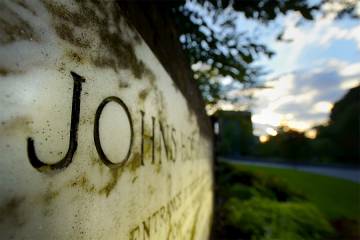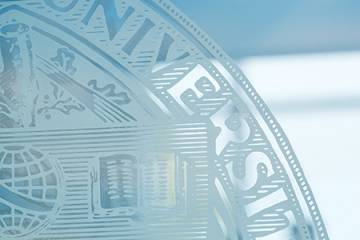Johns Hopkins University filed a lawsuit in federal court Friday, pushing back against a Trump administration order that would abruptly rescind accommodations for online learning during the COVID-19 pandemic for the nearly 5,000 international students at the university and thousands more across the country.
The university's complaint, filed in U.S. District Court in Washington, D.C., seeks a temporary restraining order against the proposal by U.S. Immigration and Customs Enforcement, or ICE, stating that it is "arbitrary and capricious," unlawful, and a reversal of earlier guidance upon which months of careful planning is based.
Johns Hopkins joins Harvard, MIT, and the University of California system in filing litigation to stop the rule change from taking effect. In a message to the university community Friday, JHU President Ronald J. Daniels said he expected these cases to move very quickly and anticipates arguments on the requests for preliminary injunctions as soon as next week.
"The administration's decision is gratuitous, cruel, and inimical to what this country is about," Daniels said. "The university was left with no option but to bring an emergency lawsuit in federal court to stop the administration from pushing ahead with an illegal and unconstitutional directive that, if permitted to stand, would fundamentally undermine the educational freedoms and humanitarian values that animate higher education in our country."
In its complaint, the university alleges that the policy change is unlawful in several ways:
- It was made in an "arbitrary and capricious" manner in violation of the Administrative Procedures Act
- It rescinds a rule the administration had indicated would stay in place through the end of the COVID emergency in a manner that is contrary to law
- The government did not provide required notice or opportunity to comment
- The government failed to provide due process
- The government violated universities' constitutionally protected academic freedom
Monday's announcement by ICE and the federal Student and Exchange Visitor Program, or SEVP would prohibit international students in the country from taking an online-only course load this fall. That announcement came as colleges and universities grapple with decisions about how to safely resume instructional and other activities this fall in the midst of a pandemic, and as COVID-19 cases climb across much of the country.
JHU's plans are based on months of careful deliberations and guidance from experts in medicine and public health as the university seeks to balance educational considerations with a commitment to safeguard the health of its faculty, staff, and students. Johns Hopkins' situation is complicated by the fact approaches to fall instruction will vary by program, with some planning entirely online courses and others—including the undergraduate program—planning a hybrid approach with a mix of online-only and in-person offerings. Those programs may be forced to revert to online-only instruction with little notice should the public health situation deteriorate.
"This unjust and discriminatory attack on international students cuts to the core of our mission of education and research," JHU Provost Sunil Kumar said. "It cannot be allowed to stand."
The rule applies to holders of two types of visas, including F-1 visas, which allow nonimmigrant students to pursue academic coursework in the U.S. The U.S. has the largest international student population in the world, with more than 1 million of the nation's higher education students—roughly 5.5% of all college students in the U.S.—coming from abroad, according to the nonprofit Institute of International Education.
"This country was built on the boundless spirit of innovation and discovery contributed by generations of immigrants and foreign-born scholars," Daniels said. "The genius of American higher education lies in the extent to which it has fostered this spirit, reached out to the world, and welcomed international students and scholars to our institutions.
"We understand that these events create a great deal of uncertainty and anxiety for our international students. As we move forward with our legal action, our international students and scholars will have Johns Hopkins' continued and unwavering support. We can assure you that the federal government's action has not changed our commitments to providing the best possible educational experience and research opportunities for our students while also safeguarding their health and safety."
Posted in University News









